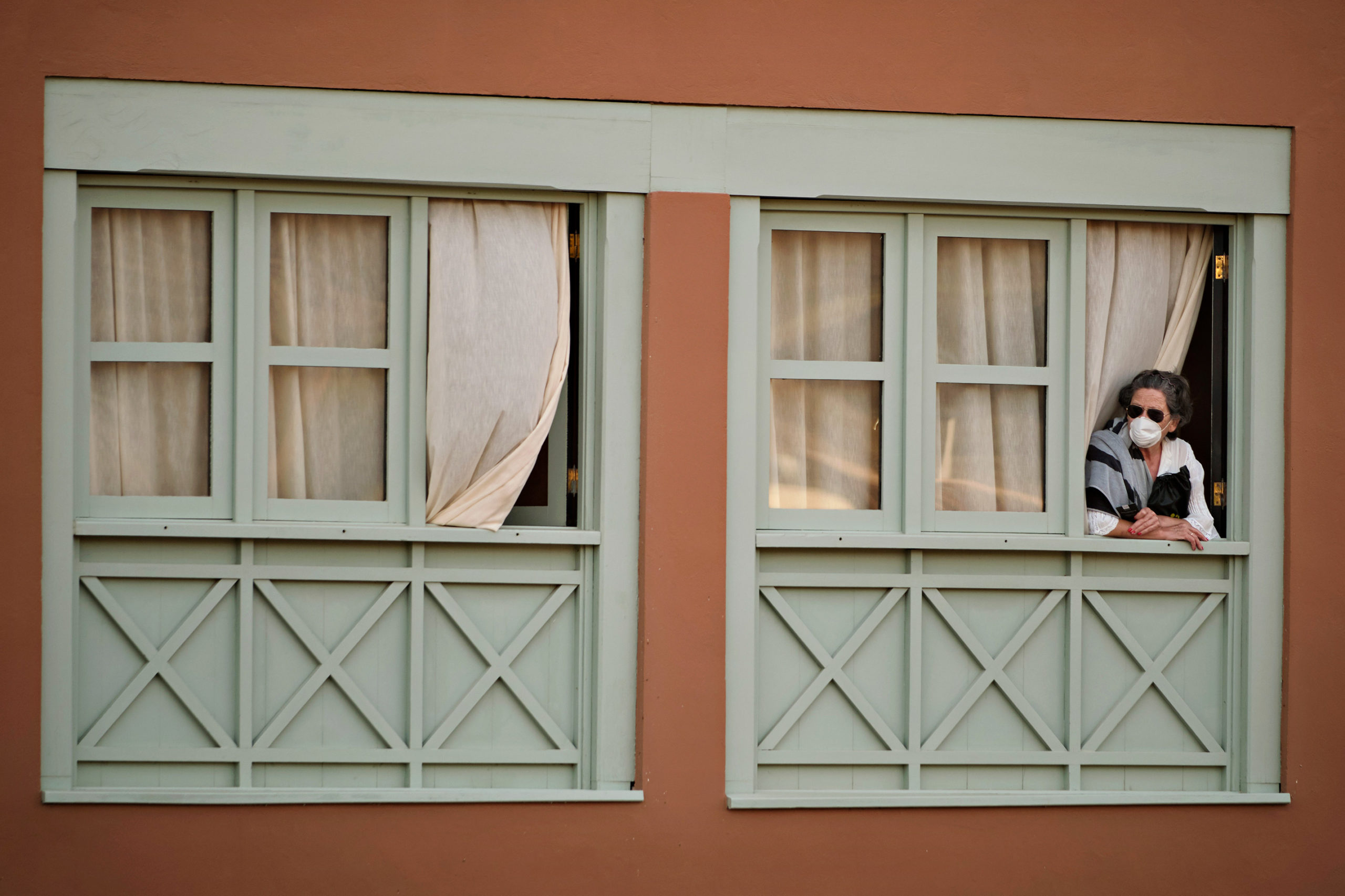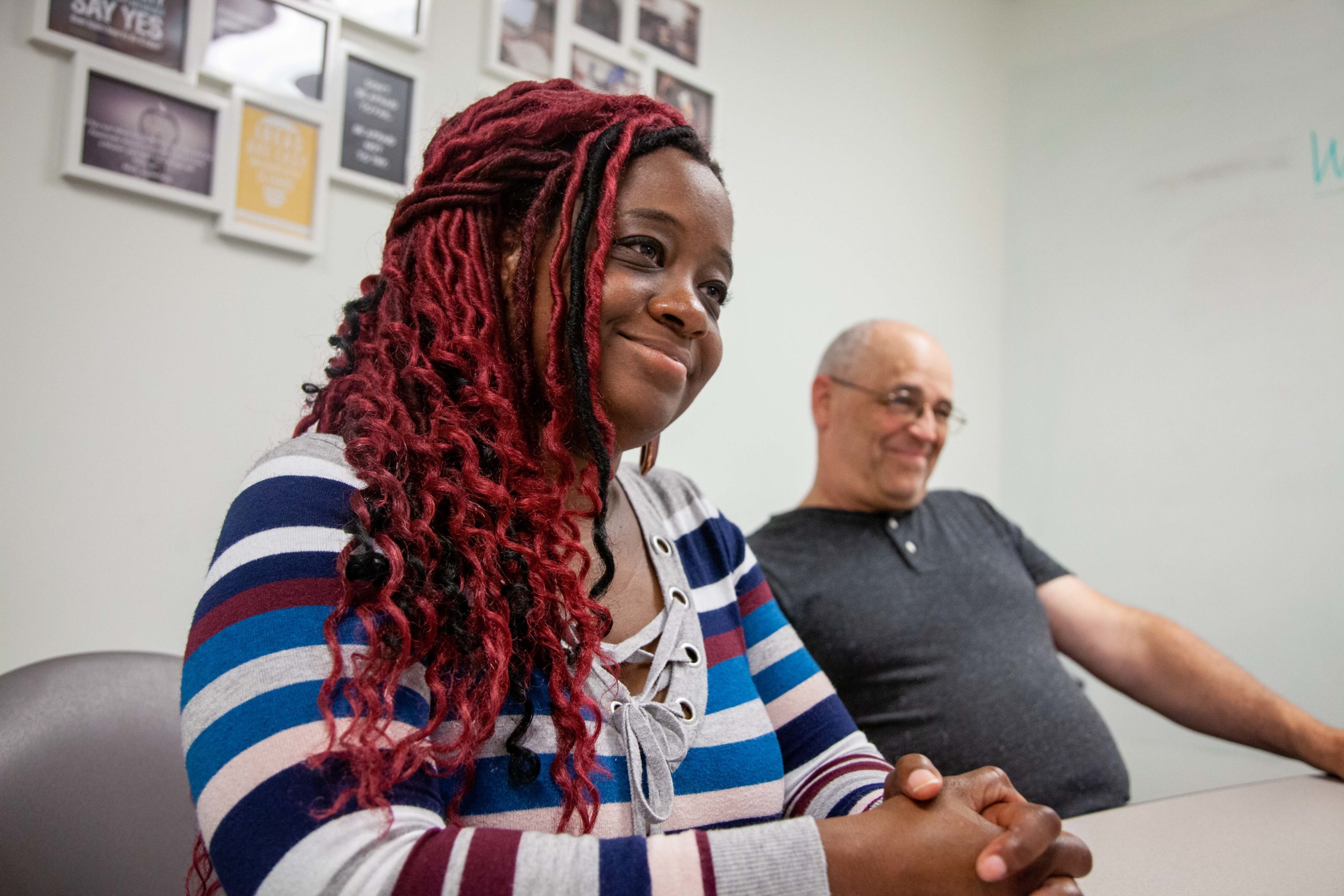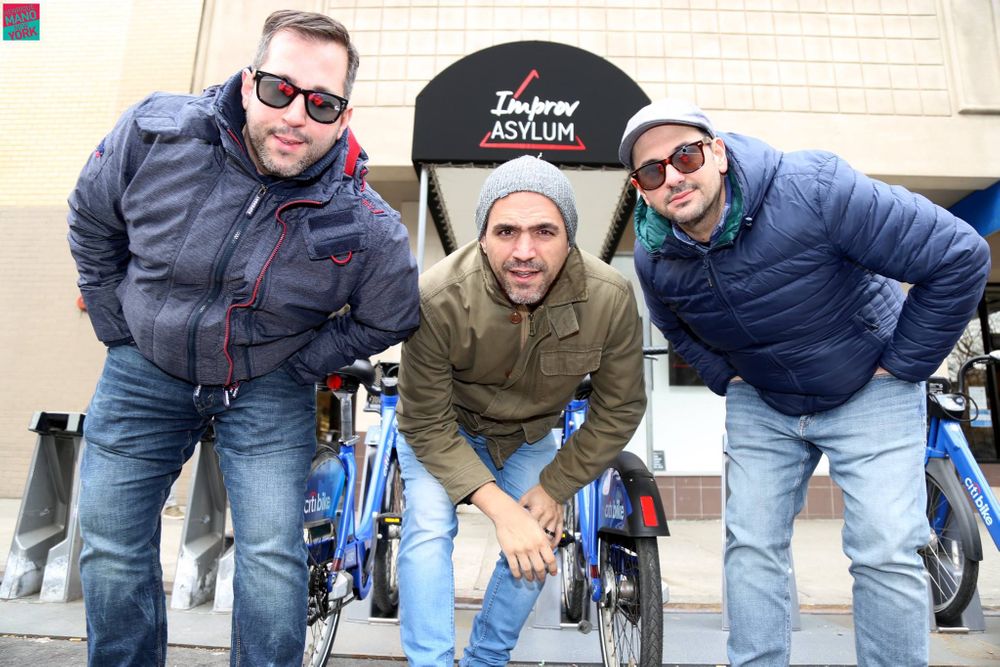Episode 189: New Englanders Prepare For The Coronavirus; Racial Harassment Or Free Speech?
As the coronavirus spreads, we look at how New Englanders are preparing. And after the only black woman in Vermont’s House of Representatives was targeted by a white nationalist, state officials and community members debated racial harassment versus free speech. Plus, “The Portuguese Kids” tap their culture experiences for comic material.
Self-Quarantine vs. Involuntary Quarantine

A woman looks out of a window at the H10 Costa Adeje Palace hotel in La Caleta, in the Canary Island of Tenerife, Spain, Feb. 26, 2020. (AP Photo)
As the coronavirus pandemic continues to spread around the world and the U.S., a growing number of people in New England are taking matters into their own hands and self-quarantining. But what happens when a quarantine isn’t a choice — and is required by the government?
The quarantine process varies by state, said Wendy Parmet, law professor and director of the Center for Health Policy and Law at Northeastern University. But generally, she said, a state must cite a strong public health reason and the quarantine itself has to be reasonable.
“The state, at least ideally, should not impose a quarantine unless it’s really necessary — unless it can’t achieve the same public health benefit through a less restrictive means,” Parmet told NEXT.
There are two types of quarantines: voluntary, which is largely what we have been seeing in the U.S., and involuntary.
“Governments can put police officers outside the door,” Parmet said of the latter. “All states have codes for what happens — civil and potentially criminal penalties for actually violating orders.”
But what’s more important than worrying about people breaking quarantine laws? Helping people follow recommendations to prevent the spread of coronavirus, she said. Parmet and her colleagues have published an open letter to Vice President Mike Pence and other state and federal policymakers outlining the steps they thought would help, including sick pay for low-wage or gig workers and economic relief for hourly employees who can’t telecommute or work from home. Without that, Parmet said some people will be in a difficult spot: Forced to choose between quarantining themselves for the public good …or losing their job and not making rent.
In a national address March 11, President Donald Trump called on Congress to enact a payroll tax cut. He said he would also consider other relief for workers and businesses.
Coronavirus News And Information From New England States
Racist — And Protected — Free Speech in Vermont

Kiah Morris and her husband James Lawton. After stepping down as Vermont’s second-ever black, female representative, Morris continues to be involved in the state’s racial justice movement. (Mike Dougherty / VT Digger)
It’s been more than a year since the only female African American representative in Vermont’s Statehouse stepped down. Kiah Morris resigned after becoming the target of a white nationalist who lives in her district. The man’s actions led to a legal debate over racial harassment and free speech. Morris had been the second black woman ever to be elected to the state legislature in Vermont.
This story is part of the series “Breakdown in Bennington” from Vermont Public Radio and the investigative, online newspaper VTDigger.
‘The Portuguese Kids’ Tap Second-Generation Immigrant Experience For Comedy

Al Sardinha, Brian Martins and Derrick DeMelo, or “The Portuguese Kids,” outside Improv Asylum. (Henrique Mano/The Portuguese Kids)
“The Portuguese Kids” grew up in Fall River, Mass., a city with the largest concentration of Portuguese Americans in the U.S. After years of comedy experimentation, the trio realized they got the most laughs when they tapped their experiences as second-generation immigrants. “Mosaic,” a podcast about the immigrant experience from The Public’s Radio, digs into the background and comedy of “The Portuguese Kids.”
Also on this week’s show:
- Anticipating A Quarantine? Not Everyone Is Able To Stock Up The Pantry
- Maine Schools Step Up Hygiene And Emergency Practices In Response To Coronavirus Concerns
About NEXT
NEXT is produced at Connecticut Public Radio
Host/Producer: Morgan Springer
Executive Editor: Vanessa de la Torre
Senior Director: Catie Talarski
Contributors to this episode: Robbie Feinberg, Carey Goldberg, Jill Kaufman, Peter Hirschfeld, Alex Nunes, Ana Gonzalez.
Guests: Hunter Marotte and Wendy Parmet.
Music: Todd Merrell, “New England” by Goodnight Blue Moon, “So Blue” by Audio Jane, “Chalkboard Balladeer” by Chris Ross and the North, “So Blue” by Audio Jane and “Save A Different Way” by Francesca Blanchard.
New to NEXT? You can find every episode or one you missed within our archives.
We want your feedback! Send critiques, suggestions, questions, and ideas to next@ctpublic.org. Help us spread the word! If you like what you hear, rate and review us on iTunes.
Follow us on Facebook and Twitter.
NEXT is produced at Connecticut Public Radio
